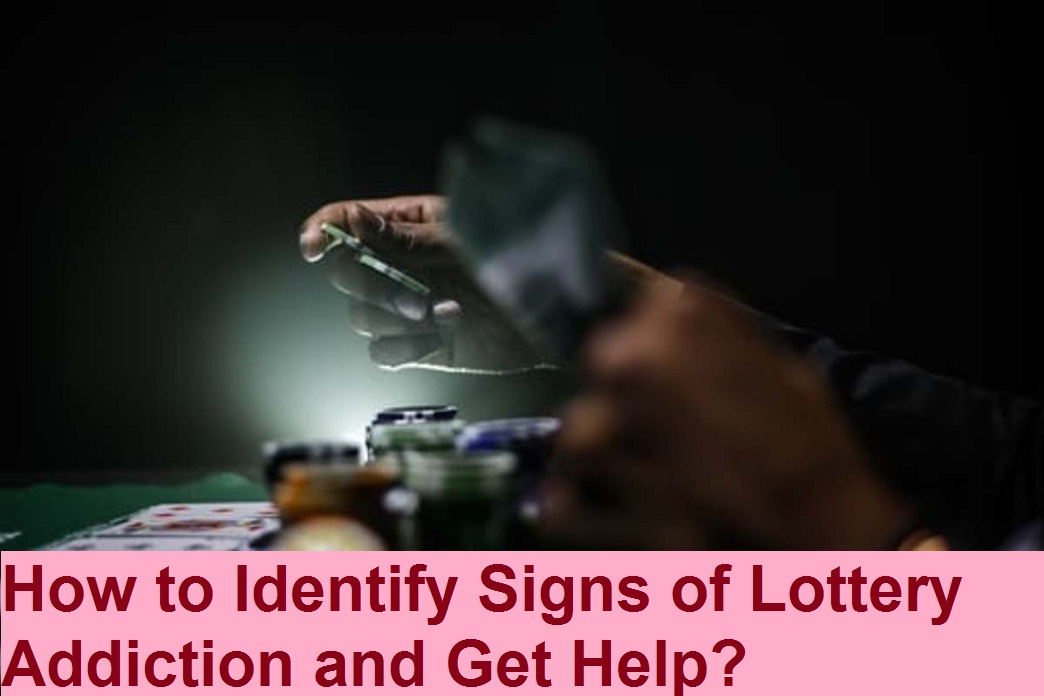Contents
Signs of Lottery Addiction
Lotteries can be an exciting form of entertainment and a chance to win big. However, for some individuals, lottery playing can turn into a harmful addiction. Lottery addiction is a serious issue that can have detrimental effects on a person’s life, including financial difficulties, strained relationships, and even mental health problems. In this article, we will explore how to identify signs of lottery addiction and provide guidance on seeking help. If you suspect that you or someone you know may be struggling with lottery addiction, read on to understand the warning signs and discover the resources available for support.
How to Identify Signs of Lottery Addiction and Get Help
Understanding Lottery Addiction
Before diving into the signs of lottery addiction, it’s essential to understand what exactly constitutes an addiction. Lottery addiction, also known as compulsive gambling or problem gambling, is a condition in which an individual cannot control their urge to gamble, despite the negative consequences it may have on their life.
Frequent Thoughts and Preoccupation
One of the telltale signs of lottery addiction is when thoughts of gambling, such as playing the lottery, become a constant presence in a person’s mind. Individuals may find themselves preoccupied with lottery numbers, strategies, and winning scenarios throughout the day. This preoccupation can interfere with their ability to focus on work, relationships, and other important aspects of life.
Increased Time and Money Spent on Lottery
Lottery addicts often find themselves spending a significant amount of time and money on lottery tickets. They may start by purchasing tickets occasionally but gradually increase the frequency of their purchases. Over time, the financial toll of lottery addiction can become severe, with individuals spending beyond their means and neglecting essential expenses such as bills and savings.
Failed Attempts to Stop or Cut Back
One of the key indicators of addiction is the inability to control or stop the behavior despite repeated attempts to do so. Individuals struggling with lottery addiction may recognize the negative consequences of their gambling habits and make promises to quit or reduce their participation in the lottery. However, they find it challenging to follow through on these intentions and often relapse into their old patterns.
Neglected Responsibilities and Relationships
Lottery addiction can have a profound impact on an individual’s personal and professional life. As the addiction takes hold, individuals may start to neglect their responsibilities, such as work or household duties. They may also experience strained relationships with family members, friends, or colleagues due to their gambling habits. These negative consequences can further fuel the addictive cycle, as individuals may turn to gambling as a way to escape from their problems.
Emotional Distress and Mood Swings
Lottery addiction can take a toll on a person’s emotional well-being. Individuals struggling with this addiction may experience increased levels of stress, anxiety, and depression. The anticipation of winning and the disappointment of losing can lead to intense emotional highs and lows, causing mood swings and a rollercoaster of emotions.
Borrowing or Stealing Money
In desperate attempts to fuel their gambling habits, individuals with lottery addiction may resort to borrowing money from friends, family, or even financial institutions. They may also engage in deceptive behaviors, such as stealing or committing fraud, to obtain funds to support their gambling. These actions can lead to severe legal and financial consequences, exacerbating the negative effects of the addiction.
Conclusion
Lottery addiction can have a significant impact on a person’s life, leading to financial difficulties, strained relationships, and emotional distress. By recognizing the signs of lottery addiction, individuals can take the first step towards seeking help and reclaiming control over their lives. Remember, addiction is a treatable condition, and recovery is possible with the right support and resources. If you or someone you know is struggling with lottery addiction, don’t hesitate to reach out for assistance. There is hope, and a brighter future awaits beyond the grips of addiction.
FAQs: How to Identify Signs of Lottery Addiction and Get Help?
- Q: How can I differentiate between recreational lottery playing and lottery addiction?
- A: The line between recreational playing and addiction can be blurry. If you find yourself preoccupied with gambling, spending excessive time and money on the lottery, and experiencing negative consequences in your life, it’s crucial to seek help and evaluate your gambling habits.
- Q: Are there any support groups or helplines available for individuals struggling with lottery addiction?
- A: Yes, there are several support groups and helplines dedicated to assisting individuals with gambling problems. Organizations such as Gamblers Anonymous offer a supportive community and resources for those seeking help.
- Q: Can therapy be beneficial in treating lottery addiction?
- A: Yes, therapy can be an effective approach to address the underlying causes and triggers of lottery addiction. Cognitive-behavioral therapy (CBT) and motivational interviewing are commonly used techniques in treating gambling disorders.
- Q: How can I approach a loved one about their lottery addiction?
- A: Initiating a conversation about a sensitive topic like addiction can be challenging. It’s important to approach the conversation with empathy, non-judgment, and a focus on expressing concern for their well-being. Offering support and resources can help encourage them to seek help.
- Q: Is it possible to recover from lottery addiction?
- A: Yes, recovery from lottery addiction is possible with the right support and treatment. It may require a combination of therapy, support groups, lifestyle changes, and establishing healthy coping mechanisms. Each individual’s journey to recovery is unique, and it’s essential to seek professional help for guidance.
- Q: Are there any online resources available for individuals looking for information on lottery addiction and treatment?
- A: Yes, several reputable websites provide valuable information about lottery addiction, treatment options, and support services. Websites like the National Council on Problem Gambling (www.ncpgambling.org) and the Substance Abuse and Mental Health Services Administration (www.samhsa.gov) offer comprehensive resources.

